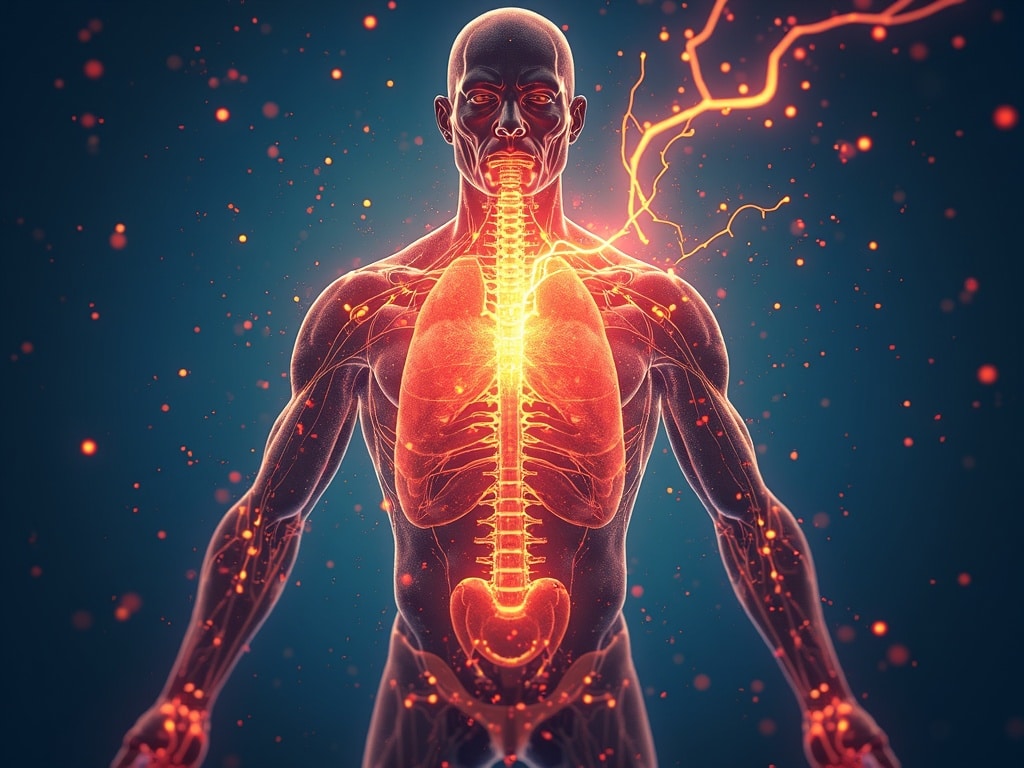The Low Testosterone and Fatigue Connection: Reclaiming Your Energy
Is that relentless fatigue more than just a bad week? Could it be linked to something deeper, something like low testosterone? For many men, the connection between plummeting energy levels and dwindling testosterone is a frustrating reality. Let’s explore this vital link and uncover paths to revitalizing your vigor.
Understanding Testosterone and Its Role
Testosterone, often hailed as the quintessential male hormone, is much more than just a driver of libido and muscle mass. It's a cornerstone of overall health, playing a crucial role in:
- Energy levels: Testosterone helps regulate metabolism and convert food into energy.
- Muscle mass and strength: It's vital for building and maintaining muscle, which are key to physical activity and energy expenditure.
- Bone density: Testosterone contributes to bone strength, reducing the risk of fractures.
- Mood and cognitive function: It influences mood, focus, and cognitive abilities.
- Red blood cell production: Testosterone stimulates the production of red blood cells, which carry oxygen throughout the body.
When testosterone levels dip, these essential functions can falter, leading to a cascade of unwelcome symptoms, with fatigue often taking center stage.
The Fatigue Factor: How Low Testosterone Steals Your Energy
Fatigue associated with low testosterone isn't just feeling a bit tired after a long day. It's a pervasive, debilitating exhaustion that can significantly impact your quality of life. Here's how low testosterone directly contributes to this energy drain:
- Reduced metabolic rate: Lower testosterone can slow down your metabolism, making it harder to convert food into usable energy. This can leave you feeling sluggish and lethargic.
- Muscle loss: As testosterone declines, you may experience muscle loss. Since muscle burns more calories than fat, this decrease further contributes to a slower metabolism and reduced energy levels.
- Impaired sleep: Low testosterone can disrupt sleep patterns, leading to insomnia or poor sleep quality. Lack of restful sleep exacerbates fatigue and creates a vicious cycle.
- Increased body fat: Lower testosterone levels are often associated with increased body fat, particularly around the abdomen. Excess body fat can lead to inflammation and insulin resistance, both of which can contribute to fatigue.
- Anemia: Because testosterone plays a role in red blood cell production, low levels can contribute to anemia, a condition characterized by a lack of red blood cells. Anemia deprives the body's tissues of oxygen, leading to fatigue, weakness, and shortness of breath.
Recognizing the Signs: Symptoms Beyond Fatigue
While fatigue is a prominent symptom of low testosterone, it often presents alongside other indicators. Recognizing these accompanying signs can help you paint a clearer picture of the potential issue:
- Decreased libido: A decline in sexual desire is a common sign of low testosterone.
- Erectile dysfunction: Difficulty achieving or maintaining an erection can also indicate low testosterone.
- Loss of muscle mass: Noticeable reductions in muscle size and strength.
- Increased body fat: Particularly around the abdomen.
- Mood changes: Irritability, depression, or anxiety.
- Hair loss: Thinning hair or hair loss on the body.
- Difficulty concentrating: Problems with focus and memory.
- Decreased bone density: Increased risk of fractures.
If you're experiencing a combination of these symptoms, it's wise to consult a healthcare professional for evaluation.
Diagnosing Low Testosterone: The Importance of Testing
Diagnosing low testosterone, also known as hypogonadism, requires a blood test to measure your testosterone levels. It's important to note that testosterone levels fluctuate throughout the day, so your doctor may recommend testing at a specific time, usually in the morning when levels are typically highest.
The normal range for testosterone can vary slightly depending on the laboratory, but generally falls between 300 and 1,000 nanograms per deciliter (ng/dL). If your testosterone level falls below the normal range, your doctor may perform additional tests to determine the underlying cause of the deficiency.
Reclaiming Your Energy: Treatment Options for Low Testosterone
Several treatment options are available to address low testosterone and combat fatigue. The best approach will depend on the underlying cause of your low testosterone and your individual health needs.
- Testosterone Replacement Therapy (TRT): TRT is the most common treatment for low testosterone. It involves supplementing your body with testosterone through injections, gels, patches, or oral medications. TRT can effectively restore testosterone levels, alleviate symptoms like fatigue, and improve energy levels, muscle mass, and libido. However, it's important to discuss the potential risks and benefits of TRT with your doctor before starting treatment.
- Lifestyle Modifications: In some cases, lifestyle changes can help boost testosterone levels and improve energy. These include:
- Regular exercise: Particularly resistance training, can stimulate testosterone production.
- Healthy diet: Consuming a balanced diet rich in protein, healthy fats, and essential nutrients supports hormone production and overall health.
- Weight management: Maintaining a healthy weight can help improve testosterone levels and reduce fatigue.
- Stress reduction: Chronic stress can suppress testosterone production. Practicing stress-reducing techniques like yoga, meditation, or spending time in nature can be beneficial.
- Adequate sleep: Aim for 7-8 hours of quality sleep per night to support hormone regulation and energy levels.
- Addressing Underlying Medical Conditions: In some cases, low testosterone may be caused by an underlying medical condition, such as obesity, diabetes, or thyroid disorders. Treating these conditions can help improve testosterone levels and alleviate fatigue.

Natural Strategies to Support Testosterone and Energy
While TRT may be necessary for some men, certain natural strategies can complement medical treatment or serve as preventative measures to support testosterone levels and boost energy.
- Prioritize Quality Sleep: Sleep is a cornerstone of hormone regulation. Aim for 7-9 hours of uninterrupted sleep each night. Establish a regular sleep schedule, create a relaxing bedtime routine, and optimize your sleep environment for darkness and quiet.
- Embrace Strength Training: Resistance exercise is a powerful tool for stimulating testosterone production. Focus on compound exercises like squats, deadlifts, bench presses, and rows.
- Optimize Your Diet: Consume a balanced diet rich in whole foods, including lean protein, healthy fats, complex carbohydrates, and plenty of fruits and vegetables.
- Manage Stress Levels: Chronic stress can elevate cortisol levels, which can suppress testosterone production. Incorporate stress-reducing activities into your daily routine, such as meditation, yoga, or spending time in nature.
- Consider Key Supplements: Some supplements have been shown to support testosterone production and energy levels. These include:
- Vitamin D: Essential for various bodily functions, including hormone production.
- Zinc: Plays a crucial role in testosterone synthesis.
- Magnesium: Important for energy production and muscle function.
- D-Aspartic Acid (DAA): May help increase testosterone levels.
- Creatine: Primarily known for its muscle-building benefits, but may also support testosterone production.
The Takeaway: Taking Control of Your Energy and Health
The connection between low testosterone and fatigue is undeniable. If you're experiencing persistent fatigue and other symptoms suggestive of low testosterone, it's crucial to seek medical evaluation. Through proper diagnosis and treatment, whether it involves TRT, lifestyle modifications, or a combination of both, you can reclaim your energy, restore your vitality, and improve your overall quality of life. Don't let low testosterone dictate your energy levels – take proactive steps to revitalize your health and well-being.
